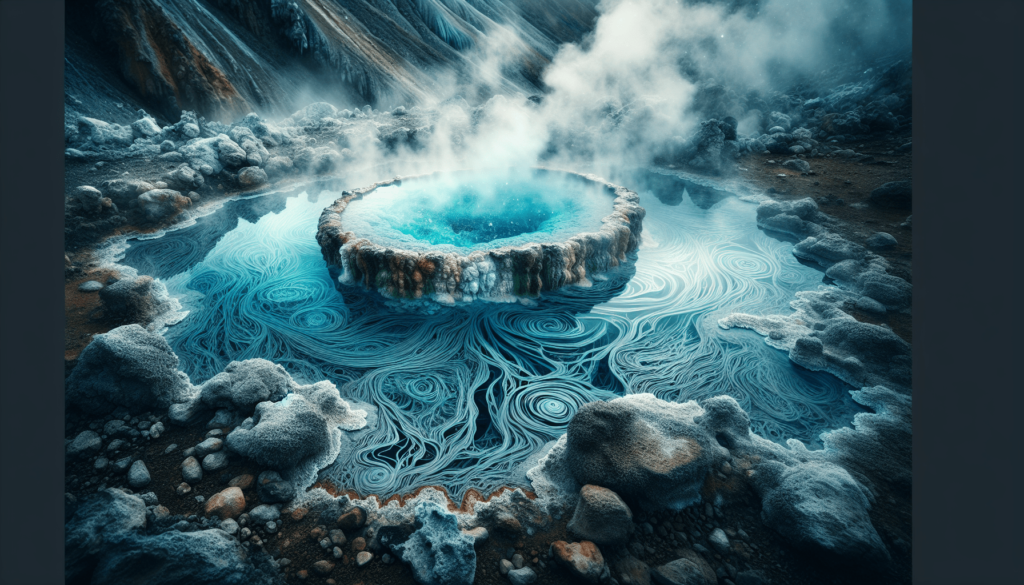Imagine the soothing warmth of hot springs enveloping your tired body, the steam rising, and the feeling of ultimate relaxation. While hot springs are often associated with healing benefits, there are certain circumstances when it’s best to steer clear of them. Whether it’s due to certain medical conditions, pregnancy, or simply extreme outdoor temperatures, it̵7;s important to be aware of when not to indulge in the inviting waters of hot springs. In this article, we will explore the situations in which you should exercise caution and avoid hot springs to ensure your well-being and enjoyment.
Pregnancy and Medical Conditions
Pregnancy
If you are pregnant, caution is advised when it comes to using hot springs. While soaking in hot springs can provide relaxation and alleviate certain discomforts associated with pregnancy, it is important to be mindful of the potential risks. Prolonged exposure to hot water can increase your core body temperature, which may be harmful to your developing baby. It is best to consult with your healthcare provider before soaking in hot springs during pregnancy to ensure your safety and the well-being of your baby.
High Blood Pressure
Individuals with high blood pressure should approach hot springs with caution. The high temperature of the water can cause dilation of blood vessels, leading to a drop in blood pressure. While this may not be a concern for everyone, those with already low blood pressure or who are on medication to regulate their blood pressure should be especially cautious. To avoid any potential health risks, it is advisable to seek medical advice before immersing yourself in hot springs if you have high blood pressure.
Heart Conditions
If you have a heart condition, it is important to exercise caution when considering soaking in hot springs. The heat and relaxation may initially feel pleasant, but the high temperature of the water can cause your heart rate to increase and put additional strain on your cardiovascular system. People with a history of heart conditions, such as heart disease or arrhythmia, should consult with their healthcare provider before enjoying hot springs, as the potential risks may outweigh the benefits.
Diabetes
Individuals with diabetes should take extra precautions when using hot springs. The high temperature of the water can affect blood sugar levels, leading to potential complications for those who have difficulty regulating their blood glucose. It is crucial to monitor blood sugar levels closely and consult with your healthcare provider before immersing yourself in hot springs if you have diabetes. They can provide you with personalized advice based on your specific health needs.
Open Wounds or Infections
If you have open wounds or infections, it is best to avoid soaking in hot springs until the wounds have fully healed or the infections have cleared. Hot springs contain natural minerals and microorganisms that can potentially contaminate wounds or aggravate existing infections. It is crucial to prioritize your health and wait until your wounds or infections have fully resolved before enjoying the benefits of hot springs.
Allergies and Sensitivities
Chemical Sensitivities
Individuals with chemical sensitivities may want to exercise caution when using hot springs. While natural hot springs are typically free from chemicals, commercial hot springs may use additives such as chlorine and other chemicals for water treatment. These additives can potentially trigger allergic reactions or sensitivities in individuals with chemical sensitivities. Researching and choosing natural hot springs without chemical additives may be a more suitable option for those with chemical sensitivities.
Sulfur Allergies
Hot springs that contain sulfur can provide various health benefits, but individuals with sulfur allergies should approach them with caution. Sulfur is a naturally occurring mineral found in some hot springs, and exposure to it can cause allergic reactions in susceptible individuals. If you know you are allergic to sulfur, it is best to avoid hot springs that contain this mineral to prevent any adverse allergic reactions.
Heat Intolerance
If you have a condition that causes heat intolerance, such as certain autoimmune disorders or multiple sclerosis, be cautious when considering using hot springs. The high temperature of hot springs can exacerbate the symptoms of heat intolerance and potentially cause discomfort or other adverse effects. It is essential to listen to your body and seek medical advice before immersing yourself in hot springs if you have heat intolerance.

Medication Interactions
Blood Thinners
If you are taking blood thinners, it is important to be aware of the potential interactions between these medications and hot springs. The heat of the water can increase blood flow and potentially enhance the effects of blood thinners, leading to an increased risk of bleeding. Consult with your healthcare provider before using hot springs if you are taking blood thinners to ensure your safety and minimize any potential risks.
Antibiotics
When taking antibiotics, it is crucial to be mindful of potential interactions with hot springs. Some antibiotics can make your skin more sensitive to sunlight, and the heat of hot springs can further exacerbate this sensitivity. It is advisable to consult with your healthcare provider about the specific antibiotic you are taking and whether it is safe to expose your skin to hot springs while on medication.
Antihistamines
If you are taking antihistamines for allergies or other conditions, it is important to consider the potential effects of hot springs on these medications. Antihistamines can cause drowsiness, and the relaxing effects of hot springs may exacerbate this drowsiness, making you feel more tired or sleepy. To ensure your safety and prevent any potential accidents, it is advisable to consult with your healthcare provider regarding the use of hot springs while taking antihistamines.
Extreme Temperatures
Heat Sensitivity
For individuals who are sensitive to high temperatures or have a condition that affects heat regulation, hot springs may not be recommended. The heat of hot springs can overwhelm the body’s natural cooling mechanisms, potentially leading to heat exhaustion or heatstroke. If you experience difficulty tolerating heat or have a condition such as heat intolerance or hyperthermia, it is best to consult with your healthcare provider before using hot springs.
Cold Sensitivity
While hot springs are known for their warmth, some individuals may have cold sensitivity, making it uncomfortable or even dangerous for them to immerse themselves in hot springs. Cold sensitivity can be caused by various factors, such as poor circulation or certain medical conditions. If you have cold sensitivity, it is advisable to take extra precautions or choose hot springs with lower temperatures to ensure your comfort and well-being.

Skin Conditions
Eczema
Individuals with eczema should approach hot springs with caution. While the minerals in hot springs can have potential benefits for the skin, the high temperature of the water may exacerbate eczema symptoms, leading to dryness, itching, or irritation. It is recommended to consult with a dermatologist before using hot springs if you have eczema to determine the best course of action for your skin condition.
Psoriasis
Hot springs have been recognized for their potential benefits for individuals with psoriasis. The mineral content in the water, particularly sulfur, can have a positive impact on psoriasis symptoms. However, it is important to consult with a healthcare provider or dermatologist before using hot springs to ensure it is safe and suitable for your specific condition.
Rosacea
Individuals with rosacea should exercise caution when considering using hot springs. The high temperature of the water can potentially trigger flushes, redness, or other rosacea symptoms. It is advisable to consult with a dermatologist before using hot springs if you have rosacea to determine whether the benefits outweigh the potential risks and to receive personalized guidance on managing your skin condition.
Respiratory Conditions
Asthma
If you have asthma or other respiratory conditions, it is crucial to be mindful of hot springs’ potential effects on your breathing. The heat and humidity in hot spring environments can potentially trigger asthma symptoms or cause difficulty breathing for some individuals. It is recommended to consult with your healthcare provider before using hot springs if you have asthma or other respiratory conditions to ensure your safety and minimize any potential risks.
Chronic Bronchitis
Individuals with chronic bronchitis should approach hot springs with caution. The high temperature and steam in hot springs can potentially exacerbate respiratory symptoms associated with chronic bronchitis, such as coughing, wheezing, or shortness of breath. It is advisable to consult with your healthcare provider before using hot springs to determine whether they are suitable for your specific condition.
Emphysema
For individuals with emphysema, it is crucial to be cautious when considering using hot springs. The high temperature and humidity can potentially aggravate breathing difficulties associated with emphysema. It is recommended to seek medical advice before using hot springs if you have emphysema to ensure your well-being and minimize any potential risks.
Infectious Diseases
Flu
If you are experiencing symptoms of the flu, such as fever, body aches, or coughing, it is best to avoid hot springs. Soaking in hot springs while ill with the flu can potentially increase the severity of symptoms or prolong the recovery process. It is important to prioritize rest, hydration, and medical treatment when dealing with the flu and return to hot springs once you have fully recovered.
Cold Sores
If you have active cold sores or a history of recurrent outbreaks, it is advisable to avoid using hot springs until the cold sores have completely healed. Hot springs can potentially provide an environment where the herpes simplex virus, which causes cold sores, can spread to others or reactivate. To prevent any potential transmission or exacerbation of cold sores, it is best to wait until they have fully healed before using hot springs.
Staph Infections
Individuals with active staph infections or a history of recurrent infections should avoid using hot springs until the infections have completely resolved. Hot springs can potentially harbor bacteria, including staphylococcus, that can cause or worsen infections. It is important to prioritize your health and the well-being of others by refraining from using hot springs when you have an active staph infection.
Gastrointestinal Issues
Digestive Disorders
If you have digestive disorders, such as gastritis or irritable bowel syndrome, it is important to be mindful of the potential effects of hot springs on your gastrointestinal system. The high temperature of the water can potentially worsen digestive symptoms, such as abdominal pain, bloating, or diarrhea. It is advisable to consult with your healthcare provider before using hot springs if you have digestive disorders to ensure your comfort and well-being.
Ulcers
Individuals with ulcers should approach hot springs with caution. The minerals and heat in hot springs can potentially irritate existing ulcers, leading to increased discomfort or a delay in healing. It is recommended to consult with your healthcare provider before using hot springs if you have ulcers to determine the best course of action for your specific condition.
Gastritis
Hot springs may not be suitable for individuals with gastric issues like gastritis. The high temperature of the water can potentially exacerbate gastritis symptoms, including abdominal pain, nausea, or acid reflux. It is advisable to consult with your healthcare provider before using hot springs if you have gastritis to ensure your well-being and minimize any potential risks.
Recent Surgeries or Injuries
Healing Wounds
If you have healing wounds, it is best to avoid soaking in hot springs until the wounds have fully closed and healed. Hot springs may contain bacteria or microorganisms that can potentially infect open wounds, leading to complications and delaying the healing process. Prioritize your recovery and follow the guidance of your healthcare provider regarding when it is safe to use hot springs after a surgery or injury.
Surgical Incisions
For individuals with recent surgical incisions, it is crucial to consult with your surgeon or healthcare provider before using hot springs. Hot springs may affect the healing process of surgical incisions or increase the risk of infection. Follow their guidance and recommendations to ensure a safe and optimal recovery.
Fractures
If you have recently experienced a fracture, it is advisable to avoid immersing the injured area in hot springs until it has fully healed. The heat and pressure of the water may potentially exacerbate pain or swelling associated with fractures and hinder the healing process. Consult with your healthcare provider or orthopedic specialist before using hot springs if you have a recent fracture to ensure your well-being and proper healing.
Personal Comfort and Preferences
Dislike of Hot Water
If you have a personal dislike or discomfort for hot water, hot springs may not be the most enjoyable experience for you. While hot springs are known for their warmth, it is crucial to prioritize your comfort and preferences when choosing activities or experiences. There are various other forms of relaxation or nature-based activities that may better suit your personal comfort level.
Claustrophobia
For individuals with claustrophobia, entering enclosed or confined spaces like hot springs may cause anxiety or discomfort. The intimate and often enclosed nature of hot springs may trigger claustrophobic feelings in some people. If you experience claustrophobia, it is advisable to choose activities and environments that promote a sense of spaciousness and openness.
Personal Hygiene Concerns
If you have personal hygiene concerns or preferences, it is important to consider how these may be affected by using hot springs. Hot springs are shared spaces, and while they are typically well-maintained and regularly cleaned, it is natural to have personal preferences or concerns regarding hygiene. To ensure your comfort and peace of mind, it is advisable to research and choose hot springs known for their cleanliness and hygiene practices. Additionally, consider bringing personal items such as towels or slippers to enhance your level of comfort.
